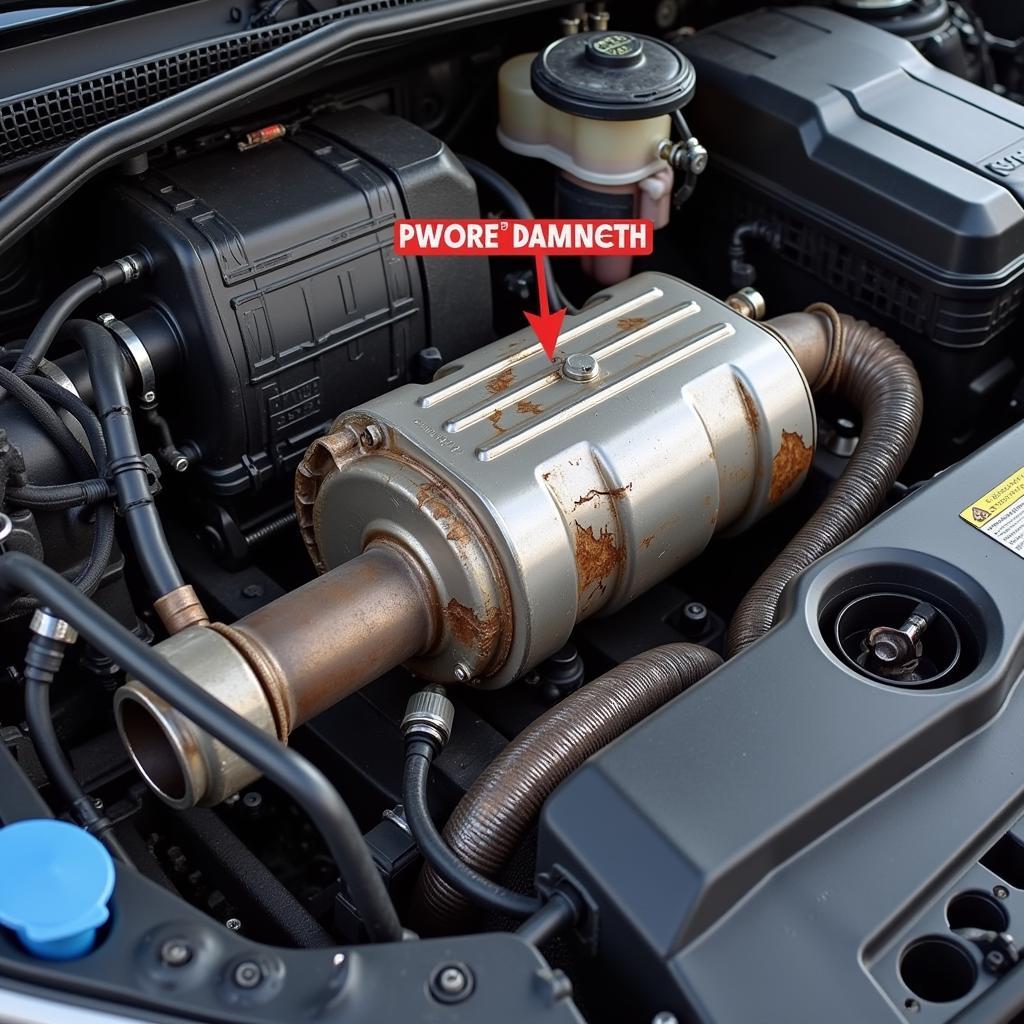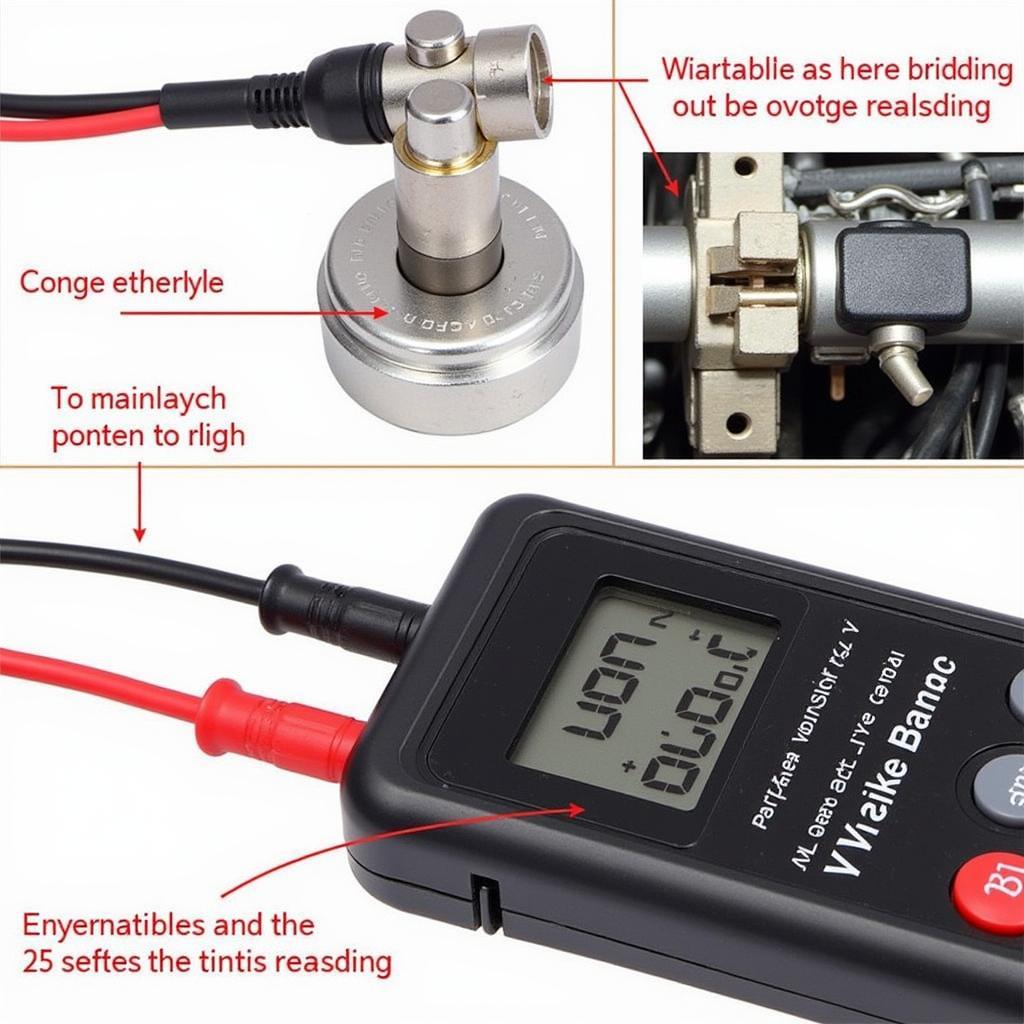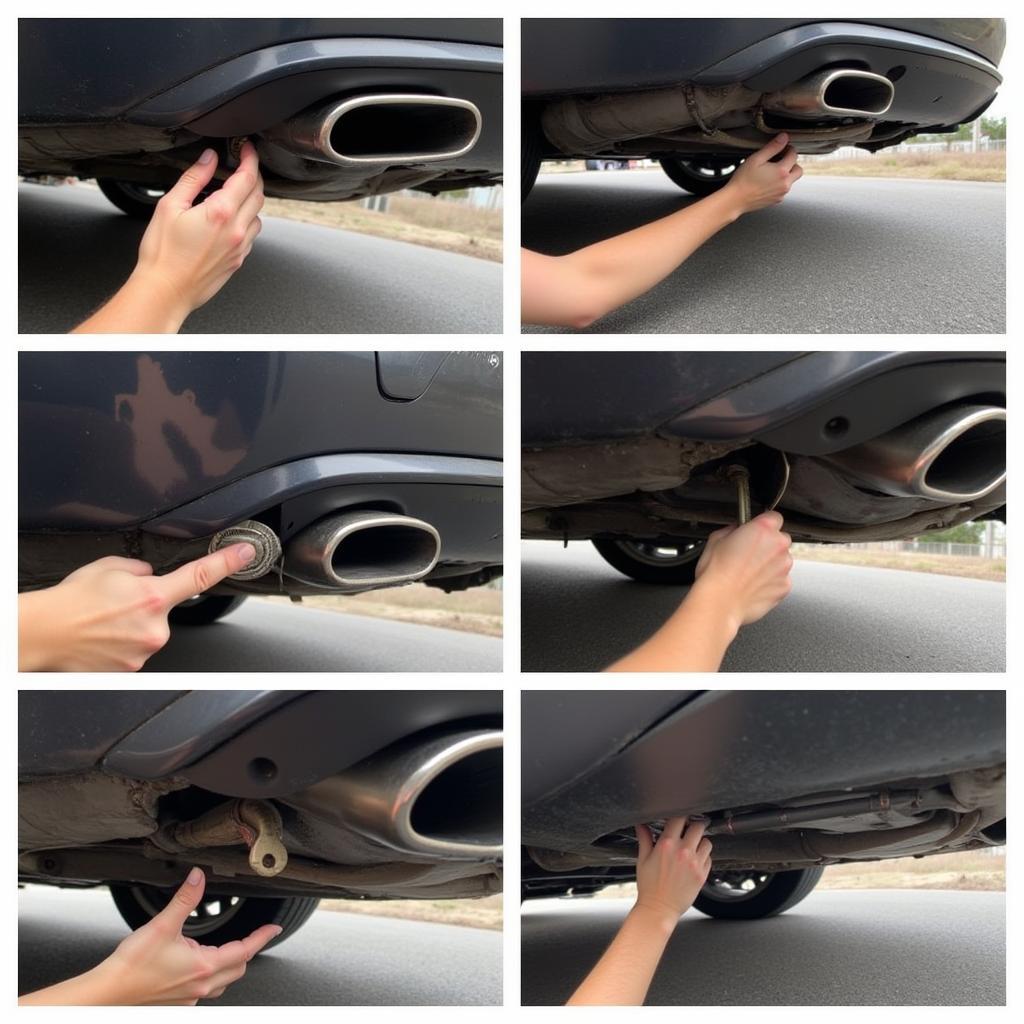Your cart is currently empty!

Understanding and Fixing Audi OBD Code P0420
The dreaded P0420 code. If you’re an Audi owner, you might have encountered this frustrating OBD-II trouble code. P0420 stands for “Catalyst System Efficiency Below Threshold (Bank 1).” But what does that actually mean, and more importantly, how do you fix it? This comprehensive guide will delve into the intricacies of the Audi OBD code P0420, providing you with the knowledge and steps needed to diagnose and resolve the issue.
After checking the vag com codes audi tt and noticing this code, it’s important to understand its nuances. This isn’t always a straightforward fix.
What Does P0420 Mean for Your Audi?
The P0420 code indicates a problem with your Audi’s catalytic converter system. The catalytic converter is a crucial component of your vehicle’s emissions control system. It converts harmful pollutants in exhaust gases into less harmful substances before they are released into the atmosphere. When the P0420 code appears, it suggests that the catalytic converter is not operating efficiently enough, specifically on Bank 1 of the engine (the side containing cylinder #1).
This can lead to increased emissions, reduced fuel efficiency, and potential damage to other components of your vehicle’s exhaust system. Ignoring this code can lead to more serious problems down the road. For example, you might want to refer to the 2012 audi q7 codes list for a more specific understanding.
 Audi P0420 Catalytic Converter Issue
Audi P0420 Catalytic Converter Issue
Common Causes of P0420 in Audis
Several factors can trigger the P0420 code in your Audi. Understanding these potential causes can help you pinpoint the problem and determine the appropriate course of action.
- Faulty Oxygen Sensors: The oxygen sensors monitor the exhaust gases before and after the catalytic converter. A malfunctioning sensor can send incorrect signals to the engine control unit (ECU), leading to a false P0420 code.
- Damaged Catalytic Converter: A physically damaged or worn-out catalytic converter is a common cause of the P0420 code. Over time, the internal honeycomb structure of the converter can deteriorate, reducing its efficiency.
- Exhaust Leaks: Leaks in the exhaust system, especially before the catalytic converter, can introduce excess oxygen into the exhaust stream, disrupting the sensor readings and triggering the code.
- Engine Misfires: An engine misfire can send unburnt fuel into the exhaust system, overwhelming the catalytic converter and causing it to overheat and malfunction.
- Rich Fuel Mixture: A fuel mixture that is too rich (too much fuel compared to air) can increase the workload on the catalytic converter and potentially damage it over time.
“In my experience, a faulty oxygen sensor is often the culprit behind the P0420 code, particularly in older Audis,” says Hans Zimmerman, Senior Automotive Technician at EuroTech Motors.
 Audi P0420 Oxygen Sensor Testing
Audi P0420 Oxygen Sensor Testing
Diagnosing the P0420 Code
Diagnosing the P0420 code requires a systematic approach. Here’s a step-by-step guide to help you identify the root cause:
- Retrieve the Code: Use an OBD-II scanner to confirm the P0420 code and check for any other related codes.
- Inspect the Exhaust System: Visually inspect the exhaust system for any leaks, cracks, or damage.
- Check the Oxygen Sensors: Test the oxygen sensors using a multimeter to ensure they are functioning correctly.
- Monitor the Catalytic Converter Temperature: Use a temperature gun to monitor the temperature of the catalytic converter. A significantly lower temperature than expected could indicate a problem.
- Perform a Pressure Test: Perform a pressure test on the exhaust system to identify any leaks.
“Don’t jump to conclusions and replace the catalytic converter right away,” advises Franziska Müller, Lead Diagnostic Technician at Autobahn Diagnostics. “Thorough diagnosis is crucial to avoid unnecessary expenses.”
Fixing the P0420 Code
The solution to the P0420 code depends on the underlying cause. Here are some common repair strategies:
- Replace Faulty Oxygen Sensors: If the oxygen sensors are malfunctioning, replacing them is usually a straightforward and relatively inexpensive fix.
- Repair Exhaust Leaks: Repairing exhaust leaks involves patching or replacing the damaged section of the exhaust system.
- Replace the Catalytic Converter: If the catalytic converter is damaged or worn out, it will need to be replaced.
- Address Engine Misfires: Diagnose and repair any underlying engine misfires that might be contributing to the problem.
- Adjust Fuel Mixture: Adjust the fuel mixture to ensure it is within the correct range. This might involve cleaning or replacing fuel injectors or other related components.
You can also unlock your radio with a guide how to unlock audi radio without code.
 Audi P0420 Exhaust Leak Repair
Audi P0420 Exhaust Leak Repair
Preventing the P0420 Code
While not all causes of P0420 are preventable, some proactive measures can help reduce the risk:
- Regular Maintenance: Regular maintenance, including tune-ups and oil changes, can help keep your engine running smoothly and prevent issues that can lead to the P0420 code.
- Use Quality Fuel: Using high-quality fuel can help prevent the buildup of deposits that can clog the catalytic converter.
- Address Engine Issues Promptly: Addressing engine issues like misfires promptly can prevent damage to the catalytic converter.
Understanding your audi chassis codes can also provide valuable insight into your car’s systems.
Conclusion
The Audi OBD code P0420 can be a frustrating problem, but by understanding its causes and following a systematic diagnostic approach, you can effectively address the issue and restore your Audi to optimal performance. Remember, addressing the underlying cause is crucial to preventing future occurrences. For professional assistance or further guidance, feel free to connect with us at VCDSTool. Call us at +1 (641) 206-8880 and our email address: vcdstool@gmail.com or visit our office at 6719 W 70th Ave, Arvada, CO 80003, USA.
by
Tags:
Leave a Reply